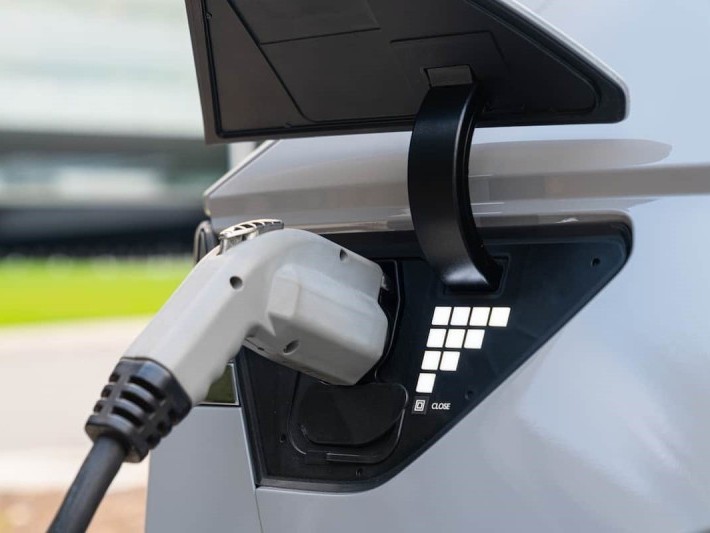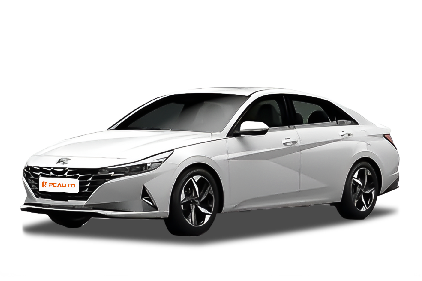Q
How much should I pay for a 2018 Hyundai Elantra?
The price of a 2018 Hyundai Elantra in the used car market typically ranges from RM55,000 to RM75,000, depending on factors like vehicle condition, mileage, trim level, and service history. Higher-spec 1.6L Sport or 2.0L variants might hit the upper end of that range, while base models or those with higher mileage will be cheaper. It’s advisable to get a professional inspection before buying to check the vehicle’s condition, especially critical components like the engine, transmission, and chassis. Also, verify insurance and road tax records to ensure there are no unresolved accidents or outstanding payments. As an economy sedan, the Elantra is known for its fuel efficiency and reliability, but used prices for different model years are also affected by new car market competition and model updates. So, it’s a good idea to compare quotes from multiple dealerships or private sellers and check if there’s any remaining factory warranty or extended warranty coverage, as these can impact the final transaction price. Additionally, used car loan interest rates and transfer fees should be calculated in advance to avoid exceeding your budget.
Special Disclaimer: This content is published by users and does not represent the views or position of PCauto.
Related Q&A
Q
Are 2018 Hyundai Elantras reliable cars?
The 2018 Hyundai Elantra delivers above-average reliability. Its powertrain uses proven 1.6L or 2.0L naturally aspirated engines paired with a 6-speed automatic transmission—a combination that's been market-tested, boasting low failure rates and reasonable routine maintenance costs. The suspension tuning leans toward comfort, making it well-suited for local road conditions, though some owners note that the sound insulation is just so-so, with noticeable tire noise at highway speeds. The Elantra's electronic systems are fairly stable, but if you're buying used, it's smart to thoroughly check that the AC system and infotainment screen are working properly. Safety features are pretty basic on this model: you get 6 airbags and stability control, but more advanced driver-assistance tech is missing. In its class, it holds its value at a mid-pack level, with a wide service network and plenty of available parts. If you're considering a used one, aim for lower mileage with complete service records, and keep an eye out for common issues like transmission hesitation or engine abnormal noise. All in all, the 2018 Elantra works well for shoppers on a budget who want a hassle-free daily driver—it offers solid all-around performance that matches its price point.
Q
What oil filter does a 2021 Hyundai Elantra take?
The 2021 Hyundai Elantra (known as Hyundai Elantra or Avante in the Malaysian market) typically uses an oil filter with the original part number 26300 - 35505. This is a model specifically designed for Hyundai Gamma series 1.6L and 2.0L engines and is compatible with mineral oil, semi - synthetic, and fully synthetic oils.
In Malaysia, car owners can also choose certified aftermarket filters from well - known brands such as MANN Filter W811/80, Fram PH9688, or Bosch 3330. These products are easily available at local auto parts stores or e - commerce platforms like Lazada and Shopee.
When selecting an oil filter, pay attention to its filtration efficiency (it is recommended that the β value be ≥ 20), burst pressure resistance (≥ 200 psi), and the material of the rubber seal ring (fluororubber is more durable). These parameters directly affect the engine protection effect.
It is recommended to replace the filter every 5,000 to 10,000 kilometers or every 6 months (depending on the type of oil and driving conditions). In tropical climates like Malaysia's hot and dusty environment, the replacement cycle can be appropriately shortened.
If you replace the filter yourself, you need to use a filter wrench with a 74 - 80mm specification. Also, remember to apply a thin layer of oil on the seal ring of the new filter to ensure a good seal.
Hyundai's authorized service centers in Malaysia, such as Hyundai - Sime Darby Motors, also offer original maintenance packages that include filters and oils that meet the specifications, which is suitable for car owners who pursue original warranty services.
Q
Does a 2021 Hyundai Elantra need synthetic oil?
For the 2021 Hyundai Elantra in the Malaysian market, synthetic oil is recommended. The original manufacturer suggests using 5W - 20 or 5W - 30 full - synthetic oils that meet the API SP or ACEA C2 standards. This type of oil can better adapt to the high - temperature working conditions in the tropical climate, providing excellent anti - wear protection and cleaning performance. At the same time, it can extend the oil change interval to about 10,000 kilometers or 6 months.
Hyundai's Smartstream engines use precision components. The high - temperature stability and low - temperature fluidity of synthetic oil can fully protect the turbocharger and GDI fuel system, preventing sludge buildup in Malaysia's stop - and - go traffic conditions. Car owners need to pay attention to choosing oils with ILSAC GF - 6 certification to ensure fuel economy. The hot and humid local environment may accelerate oil oxidation, so regularly checking the oil level is more important than the intervals specified in the manual.
If you often drive short distances or idle for long periods, you can consider shortening the oil change interval to 8,000 kilometers. However, there's no need to deliberately pursue higher - grade oils. Just follow the viscosity range specified in the manual. Some repair shops may recommend mineral oil to reduce costs, but long - term use may affect the engine's lifespan, especially for models equipped with CVVT technology.
Q
How to check oil life in 2021 Hyundai Elantra?
To check the oil life of the 2021 Hyundai Elantra, first start the vehicle and enter the dashboard menu. Use the control buttons on the right side of the steering wheel to find the "Oil Life" option, then press the "OK" button to view the remaining percentage. This system estimates the oil condition by integrating data such as engine running time, RPM, and temperature through an algorithm. It is recommended to change the oil every 5,000 to 8,000 kilometers or every 6 months, whichever comes first. However, considering the hot climate in Malaysia and the frequent start - stop driving conditions, the actual interval should be appropriately shortened.
It's worth noting that Hyundai's intelligent oil monitoring system can more accurately reflect the actual oil consumption, which is more scientific than traditional fixed - interval maintenance. Nevertheless, you still need to regularly check the dipstick to ensure the oil level is between MIN and MAX. If the oil warning light appears on the dashboard, immediate maintenance is required.
For Malaysian car owners, it is recommended to choose fully synthetic oil that meets API SP or ACEA C2 standards to cope with the high - temperature environment. At the same time, develop the habit of manually checking the oil every month when the vehicle is cold. This is especially important for turbocharged models, as it can effectively prevent engine wear caused by oil film rupture.
Q
How often does a 2021 Hyundai Elantra need an oil change?
According to the official recommendation of Hyundai, for the 2021 Hyundai Elantra in Malaysia, under normal driving conditions, it is recommended to change the engine oil every 10,000 kilometers or 12 months, whichever comes first. If you often drive in high - temperature, dusty or short - distance congested road conditions, you may consider shortening the interval to every 5,000 to 7,500 kilometers to protect the engine. The hot and humid climate in Malaysia may accelerate the deterioration of engine oil performance. Therefore, it is also important to regularly check the condition of the engine oil (such as color and viscosity). At the same time, it is recommended to use fully synthetic engine oil of API SP or ACEA C2/C3 grade recommended by the original manufacturer to ensure the best lubrication and cleaning effects. The Smartstream engine technology equipped in the Hyundai Elantra is quite sensitive to the quality of engine oil. Following the maintenance schedule can effectively extend the engine's lifespan and maintain fuel economy. Car owners can also track the next maintenance time through the in - vehicle maintenance reminder system or the MyHyundai app. It should be noted that there may be slight differences in Elantras of different years or versions. For specific information, you can refer to the vehicle handbook or consult the authorized service center in Malaysia for personalized advice.
Q
What transmission is in the 2021 Hyundai Elantra Preferred?
The 2021 Hyundai Elantra Preferred available in the Malaysian market is equipped with an Intelligent Variable Transmission (IVT). This gearbox is an advanced technology independently developed by Hyundai. By mimicking the shifting logic of traditional automatic transmissions, it offers a smoother driving experience and higher fuel efficiency, making it particularly suitable for the frequent stop - and - go traffic conditions in Malaysian cities.
The IVT gearbox features a chain - drive design. Compared with the steel - belt structure of traditional CVTs, it is more durable. Additionally, it comes with multiple driving modes (such as Eco/Sport) to meet different driving needs. It's worth mentioning that Hyundai offers a 5 - year or 300,000 - kilometer warranty (whichever comes first) for this gearbox, giving Malaysian car owners more peace of mind when using their vehicles.
Among models in the same class, Elantra's IVT technology is well - known for its low maintenance costs. You just need to regularly change the transmission fluid to keep it in good condition. It is more suitable for the hot and humid climate in Malaysia compared to dual - clutch transmissions.
If you have higher requirements for the driving experience, you can also consider the 7 - speed dual - clutch transmission offered in the Elantra N Line version. However, the Preferred version is mainly targeted at family - use comfort, and the IVT remains a more cost - effective and practical choice.
Q
What battery does a 2021 Hyundai Elantra take?
The 2021 Hyundai Elantra in the Malaysian market typically uses a 12V lead - acid battery. Specifically, it is recommended to use the 55D23L (suitable for the 1.6L and 2.0L gasoline engine versions) or a maintenance - free battery with a capacity of 60Ah or more. The cold cranking amps (CCA) are recommended to be above 500A to ensure starting performance in tropical climates. When choosing a battery, pay attention to whether the terminal position (positive on the right) and battery size (approximately 232mm×173mm×225mm) match the original factory. It is recommended to give priority to original - equipment brands such as Hyundai Mobis or well - known third - party brands such as Panasonic and Varta.
For the hybrid version, a dedicated lithium - ion battery pack is required. In such cases, it is recommended to go directly to a Hyundai authorized service center. In daily use, it is recommended to check the battery's health every two years. Especially in the high - temperature and high - humidity climate of Malaysia, the battery life may be shortened to 2 - 3 years. Regularly cleaning the electrode terminals and avoiding long - term short - distance driving can extend the battery life. If you notice slow starting or dimming headlights, check the voltage immediately.
Hyundai's intelligent power management system will actively optimize the charging efficiency, but installing too many electronic devices may increase the battery load. When purchasing, you can consider high - performance batteries with EFB (Enhanced Flooded Battery) or AGM (Absorbent Glass Mat) technology to meet higher power demands.
Q
What oil does the 2021 Elantra use?
For the 2021 Hyundai Elantra in Malaysia, it is recommended to use fully synthetic engine oil with a viscosity of 5W - 20 or 5W - 30 that meets API SP standards or higher. The specific choice should refer to the instructions regarding climate conditions and driving habits in the user manual. In hot climates or during aggressive driving, 5W - 30 can be prioritized to provide better high - temperature protection. Hyundai usually recommends using Hyundai Premium engine oil or products of certified brands such as Shell and Castrol with the same specifications. It is advised to change the oil every 10,000 kilometers or 12 months, whichever comes first.
It's worth noting that in the oil viscosity numbers, the "W" stands for winter performance. The smaller the first number, the better the low - temperature fluidity; the larger the second number, the stronger the high - temperature protection. In Malaysia's year - round high - temperature environment, proper attention can be paid to the high - temperature viscosity index. Turbocharged models have higher requirements for oil cleanliness and anti - shear performance. Be sure to choose fully synthetic oil and strictly follow the maintenance cycle.
If the vehicle is still under warranty, it is recommended to use the engine oil specified by the manufacturer to avoid warranty disputes. Meanwhile, regularly checking the oil level can help detect potential engine problems in a timely manner.
Q
Does the 2021 Elantra have CVT?
The 2021 Hyundai Elantra models available in the Malaysian market are indeed equipped with a CVT (Continuously Variable Transmission). This transmission is renowned for its smooth shifting experience and fuel efficiency, making it particularly well-suited for urban driving environments. CVT technology continuously adjusts the gear ratio, keeping the engine consistently within its most efficient RPM range. This enhances fuel efficiency while minimizing the jerky shifts associated with traditional automatic transmissions. While CVT is the primary transmission option in Malaysia, certain overseas markets may offer alternatives like dual-clutch transmissions (DCT) or manual transmissions. For drivers prioritizing daily commuting comfort and fuel economy, the CVT represents an ideal choice. Hyundai has tuned this transmission to balance responsiveness with reliability. When considering a used or new vehicle purchase, verify specific configurations through official channels and schedule a test drive to experience the CVT's performance firsthand. Additionally, regular transmission fluid maintenance and adherence to manufacturer-recommended service intervals will extend the CVT's lifespan.
Q
Is the 2021 Hyundai Elantra 2.0 L?
The 2021 Hyundai Elantra does offer a 2.0-liter naturally aspirated engine version in the Malaysian market. This engine has a maximum output power of 149 horsepower and a peak torque of 179 Nm. It is paired with a 6-speed automatic transmission, focusing on a smooth driving experience and fuel economy, which is suitable for daily commuting needs. The model adopts Hyundai's latest "Sensuous Sportiness" design language, making its appearance more sporty. At the same time, it comes standard with an 8-inch touchscreen, Apple CarPlay/Android Auto, and the Hyundai SmartSense active safety system, showing outstanding cost - effectiveness.
It's worth mentioning that the Elantra in the Malaysian market is different from the 1.6-liter turbocharged version in some overseas markets. The 2.0-liter naturally aspirated engine is more suitable for the local road conditions and fuel quality, and its maintenance cost is relatively low. In recent years, Hyundai has been continuously making efforts in the Malaysian market. As its main sedan product, the Elantra is more competitive than Japanese models in the same class in terms of space performance and technological configuration. Especially, the five - year unlimited - mileage warranty policy can make consumers use the car more at ease.
If you value practicality and the richness of configurations, this car is worth considering. Of course, it is recommended to take a test drive to see if the power performance meets your personal expectations.
Latest Q&A
Q
Are 2018 Hyundai Elantras reliable cars?
The 2018 Hyundai Elantra delivers above-average reliability. Its powertrain uses proven 1.6L or 2.0L naturally aspirated engines paired with a 6-speed automatic transmission—a combination that's been market-tested, boasting low failure rates and reasonable routine maintenance costs. The suspension tuning leans toward comfort, making it well-suited for local road conditions, though some owners note that the sound insulation is just so-so, with noticeable tire noise at highway speeds. The Elantra's electronic systems are fairly stable, but if you're buying used, it's smart to thoroughly check that the AC system and infotainment screen are working properly. Safety features are pretty basic on this model: you get 6 airbags and stability control, but more advanced driver-assistance tech is missing. In its class, it holds its value at a mid-pack level, with a wide service network and plenty of available parts. If you're considering a used one, aim for lower mileage with complete service records, and keep an eye out for common issues like transmission hesitation or engine abnormal noise. All in all, the 2018 Elantra works well for shoppers on a budget who want a hassle-free daily driver—it offers solid all-around performance that matches its price point.
Q
How much is S70 2024 in Malaysia?
Pricing details for the 2024 Volvo S70 haven't been officially announced yet, but looking at the current S60's price range (around RM250,000 to RM300,000) and the brand's recent pricing strategies, we can expect the S70 to start at roughly RM280,000, with higher-spec variants possibly approaching RM350,000. The new model is set to carry forward Volvo's family design language and will likely feature an upgraded plug-in hybrid system – the T8 Recharge version, for instance, might deliver over 400 horsepower combined. Standard tech should include the City Safety active safety suite and Pilot Assist semi-autonomous driving aids. It's worth noting that rivals like the BMW 3 Series and Mercedes-Benz C-Class have also rolled out mild-hybrid models lately. When comparing options, shoppers should pay attention to differences in hybrid tech approaches (like 48V mild hybrids versus plug-in hybrids) and after-sales warranty policies (some brands offer 5-year/unlimited mileage coverage). If you're interested, keep an eye on the upcoming Kuala Lumpur International Motor Show or reach out to authorized dealers directly to schedule a test drive – get hands-on with the Nordic luxury sedan's driving feel and signature features like those ergonomic seats.
Q
What is the price of Honda Jazz in 2019?
Prices for the 2019 Honda Jazz in local markets vary by trim level. The base 1.5E manual starts around RM70,000, while the top-spec 1.5V Sensing CVT gets close to RM90,000 – exact figures might shift with dealer promotions or optional extras. It keeps Honda's classic practical design, packing a 1.5-liter i-VTEC engine with Earth Dreams tech that balances fuel efficiency with 131 hp, making it perfect for city drives. The standout feature? Jazz's iconic ULTRA seat system with its multiple folding setups – fold the rear seats down and you get a completely flat cargo area. That "magic seat" space concept still shines in its class. The 2019 model also added Honda SENSING on higher trims, bringing features like collision mitigation braking and lane keep assist – pretty advanced stuff for its segment back then. Looking at the used market, the 2019 Jazz holds value steadily. Well-maintained examples typically retain about 60-70% of their original price, thanks to its solid reliability reputation and affordable upkeep costs.
Q
What is the power of Honda Jazz 2019?
The 2019 Honda Jazz comes with a 1.5-liter i-VTEC naturally aspirated engine locally, churning out 120 horsepower (around 89 kW) and 145 Nm of peak torque. It's paired with either a CVT or a 6-speed manual gearbox, delivering smooth, fuel-efficient performance that's perfect for city driving. Built on Honda's classic global small car platform, the Jazz features lightweight construction combined with Earth Dreams technology, resulting in impressive fuel economy—around 5.5L/100km combined. What really stands out is its "Magic Seat" design; despite being a small car, the interior flexibility beats most rivals. Fold the rear seats flat, and you get a huge cargo area. Safety-wise, it gets VSA vehicle stability control, HSA hill-start assist, and higher trims even come with the Honda SENSING active safety suite. When stacked against competitors like the Toyota Yaris and Mazda2, the Jazz holds its own in power figures, but Honda's edge in space utilization and resale value is what keeps it a long-time favorite. If you crave more pep, keep an eye out for the later Jazz RS sport variant, which gets a more performance-focused tune.
Q
What is a 2019 Honda Jazz worth?
The used market price for the 2019 Honda Jazz typically ranges from RM50,000 to RM70,000, with the exact figure depending on factors like vehicle condition, mileage, trim level, and service history. The high-spec V trim or hybrid version can cost around 10% to 15% more than the base models. This car has always been popular in the used car market thanks to the reliability and fuel efficiency of its 1.5-liter i-VTEC engine, plus the flexible Ultra Seats design. It's recommended to check the vehicle's accident history and engine condition through Honda's official channels or third-party inspection agencies before purchasing. Also, note that the 2019 model belongs to the later production run of the third-generation Jazz, which saw improvements in sound insulation and suspension tuning compared to earlier versions. If your budget is tight, consider 2017-2018 models, which are RM10,000 to RM15,000 cheaper, but be aware that some of these might be approaching the 5-year mark and may require more replacement of wear-and-tear parts.
View MoreRelated News

In Malaysia, which sliding door MPVs are available?
MichaelOct 30, 2025

Modern Ioniq 5 N Lands in Malaysia: Track-Level Performance Electric Vehicle is Here, Priced Possibly Below RM 400,000?
JohnSep 10, 2025

Hyundai's Big Return to Malaysia: Top 5 Models Expected
MichaelMay 30, 2025

580,000 km & 87.7% Battery Health: Ioniq 5’s Incredible Durability
MichaelMay 6, 2025

Revolutionizing Hybrids: Hyundai’s New System vs. Toyota's Hybrid System
Kevin WongApr 22, 2025
View More

















Pros
Cons